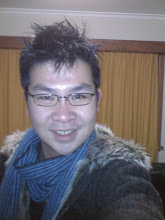Today Online 24/05/2006
The line between defamation and debate
Defence of reputation, free speech calls for a delicate balance of interests
Thomas Koshy
"PRACTICAL politics consists in ignoring facts," American historian Henry Adams said over a century ago. But time and again, ignoring the facts has been shown to be a perilous path to take in Singapore politics.
.
This was seen most recently when, faced with the prospect of having to defend their statements in court, 10 out of the 12 Singapore Democratic Party (SDP) Central Executive Committee (CEC) members apologised and withdrew statements made in relation to the National Kidney Foundation saga.
.
The party has since also decided not to file its defence and has discharged its lawyer, who continues to represent Dr Chee Soon Juan and his sister in the lawsuit.
.
The loss of credibility and apparent breaking of ranks, which earned the SDP the moniker "Slowly Disintegrating Party", probably contributed in no small part to the party — which was once the leader of the Opposition — ending up as the last choice of the people in the General Election.
.
With the many defamation suits filed against members of Opposition parties in the past, Singaporeans probably felt a sense of deja vu as matters unfolded against the CEC members. Invoking defamation laws to prevent falsehoods from gaining currency has been a consistent strategy employed by the ruling party.
.
By contrast, the Workers' Party (WP) demonstrated a rather different tack when the character of its members came under attack. It took the stance that Singaporeans are mature, they can think for themselves and come to their own conclusions.
.
This was a clever stroke that was sure to charm some, telling Singaporeans who are used to paternalistic, if not patronising, treatment, that they were mature enough to decide for themselves.
.
After the elections, the legal investigations into whether Mr Gomez had committed offences of criminal intimidation, giving false information and using threatening words and behaviour ended in anti-climax — with only a stern warning for the least serious of those offences: Using threatening words against a public servant.
.
Mr Gomez had apologised to staff of the Elections Department for the inconvenience caused to them, but never admitted to any intent beyond having been "distracted" from handing in his application form.
.
Minister Mentor Lee Kuan Yew, however, has maintained that Mr Gomez is a liar and dishonest and that if Mr Gomez claims that he is not a liar nor dishonest, "he can go to court to clear his name".
.
On the one hand, the approach of the WP is that the people can decide. On the other hand, Mr Lee says: "He has a problem if he doesn't sue me, isn't it?"
.
In any event, Mr Gomez has made it clear that he had no plans to sue Mr Lee. One wonders what conclusions Singaporeans draw from this episode.
.
Some may be confirmed in their view that this issue was so much hyperbole and does not warrant any more attention either way — that even if Mr Gomez had been dishonest, it was an insignificant transgression that was blown out of proportion.
.
Others may assume that his failure to sue the Minister Mentor for defamation shows that Mr Gomez did indeed lie and act dishonestly.
.
Yet others may not be willing to draw any conclusions from Mr Gomez's failure to go to court. After all, going to court is not a small matter, even if one thinks one has a good case.
.
Putting aside technical legal issues such as whether the defence of "fair comment" might be a stumbling block to a defamation suit, there could be a multitude of reasons why Mr Gomez chose not to sue.
.
Most obviously, he may prefer to focus on his job overseas rather than on litigation in Singapore. Or maybe he doesn't relish the idea of getting bogged down in court against a team of lawyers for the next few months.
.
More simply, he may just not be "the suing kind" and may be happy to "let the people decide". Not everyone who is defamed chooses to sue.
.
Indeed, one view is that invoking defamation laws every time statements are made which cannot be proven in court stifles liberal discussion and may even backfire by arousing suspicion.
.
Not everything can be proven in court. But that does not mean that they are not true or should not be discussed.
.
Still, one cannot doubt that persons defamed have a right to clear their name in court. Just where freedom of speech ends and defamation begins, or when suits start to stifle useful public debate, is an issue we should be alert to. Like many things in life, it is a fine balance between competing interests.
.
Meanwhile, the court action filed yesterday by the SDP's Chee Siok Chin to challenge the constitutionality of the ban on podcasting during the hustings and the validity of the election results adds a new dimension to the legal strategies employed in Singapore politics.
.
Just how matters develop is likely to be closely watched, particularly since the issues raised in the action were hotly debated by many Singaporeans. But whether the Opposition may see this as an innovative means of challenging the establishment remains to be seen.
.
The writer is a lawyer. This is his personal comment.
Today Online






0 Comments:
Post a Comment
<< Home